
STORAGE of olive oil
After all the attention paid in the field (cultivation), in the mill (extraction), and in the storage and packaging phase to produce a quality extra virgin olive oil, now it's up to you to keep the original characteristics and properties of the product.
After the cultivation, the mill and the packaging process, now it’s up to you to keep the original characteristics and properties of the product.
Remember: the presence of antioxidant substances (phenolic compounds) in olive oil protects it from rancidity. Still, this beneficial action decreases over time, and this also depends on the methods of storage and conservation of the product.
Regardless of the type of olive cultivar used, all extra virgin olive oils express the maximum in terms of taste, smell, and healthy virtues as soon as they are pressed and during the first year of life.
The Best Way To OLIVE OIL STORAGE

1. oil oxidation? Bottles
The extra virgin olive oil must be protected from light, heat, and contact with oxygen, to keep its properties (quantity of phenolic substances) and organoleptic qualities (smell and taste).
Therefore, we advise you to keep it in bottles, preferably in dark glass or small stainless steel containers.
We also suggested always storing it in a closed place, away from sources of light, heat, and other foods, above all, from products such as detergents, which would inevitably transfer odors.?
To remember: Olive Oil should preferably be consumed within 12/18 months of extraction.
2. pour it
Suppose you bought the oil in metal cans.
In that case, we recommend pouring the oil into containers of limited capacity (half a liter or even a quarter of a liter) to preserve the oil for a longer time.
This simple solution, especially for those who have reduced oil consumption in the kitchen, lowers the contact time of the extra virgin olive oil with the oxygen present in the air in the bottle’s headspace during use, preserving its characteristics and keeping it better.
For the same reason, always close the bottle or container immediately after use.

To remember: “Olive Oil falls into the second category – Minimum Shelf Life – of products in that it is not intended to have a valid expiry date but a preferable date of consumption.
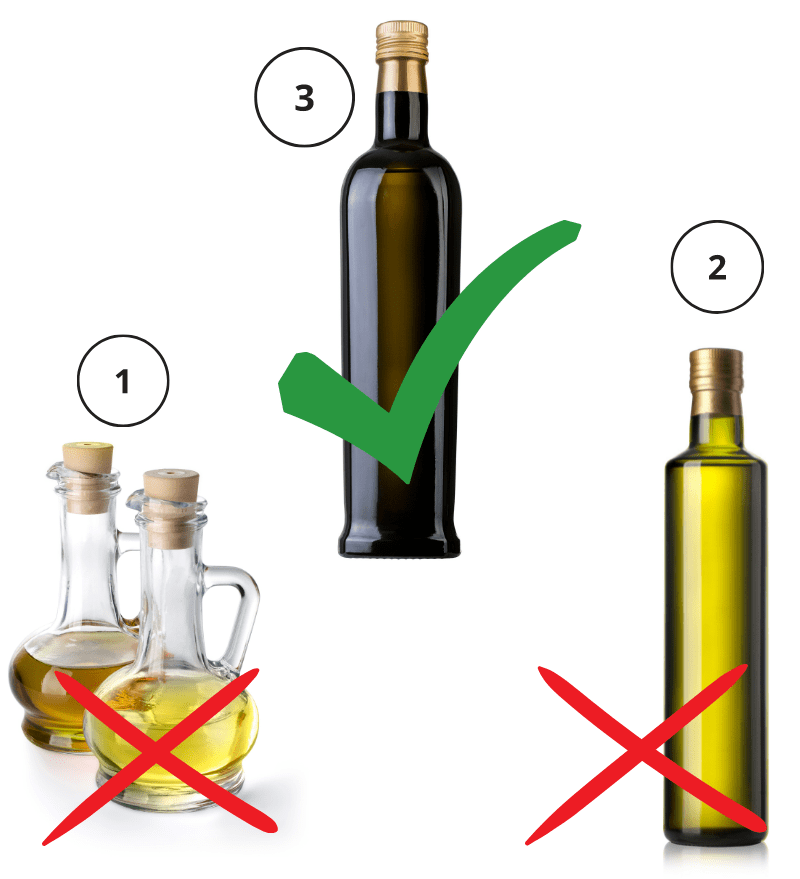
3. which container?
Cruets and cruets?
In addition, avoid the use of cruets and cruets of various kinds, even if they are beautiful and decorative.
The use of cruets and cruets in catering establishments has been definitively prohibited by recent legislation (Law 161 of 30 October 2014, art.18, paragraph 1 c). So, if you are at the restaurant, ask that the oil be served in a closed container and labeled (the bottle must be equipped with an anti-topping cap).
Even the best extra virgin olive oil is destined to oxidize rapidly in cruets and ampoules.
Let’s check together what’s on the market:
N.1 It’s a cute bottle and I personally have it on my table ( 1 for each olive oil I use !) but I’m a big consumer of EVOO, therefore there’s no time for the oil to oxidate. First, the bottles are transparent and the cork caps let the oxygen get inside.
N.2 It’s a good bottle but it lets the light enter, accelerating the oxidative process. The cap is just perfect.
N.3 Dark glass, screw cap. This is the best choice you can make in any situation.
To remember: This means that particularly bitter and spicy oils (e.g. Moraiolo, which is one of the varieties grown with the highest polyphenols content), with good antioxidant content, will last significantly longer than other varieties.
4. temperature
Ideal storage temperature
Also, remember that the ideal storage temperature for olive oil is around 15 ° -18 °.
Low or higher temperatures tend to reduce the storage time (shelf life), which, as indicated by current legislation, must preferably be 18 months from the bottling date on the label.
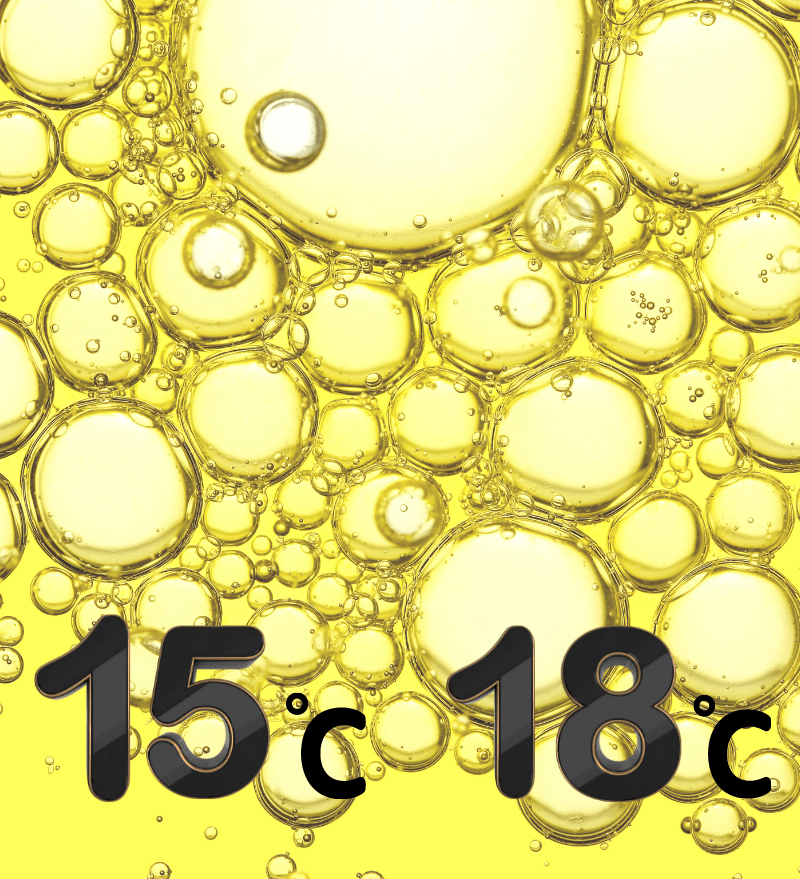
To remember: there is no standard for what time period an oil should be consumed
GENERAL FINAL CONSIDERATIONS
In this way, you will be able to keep within reach only the bottle you are using at that time, without opening and closing your can, which would soon take in air and odors.
Clearly, in this case, too, the rule of dark glass applies as the best container for storing oil, but transparent glass bottles will also do just fine as long as they are kept in the cupboard away from sources of light and heat.
Attention: it is important that the bottles are new or, in any case, well washed and free of odors that could contaminate your extra virgin olive oil.
Remember that it is a living product, highly contaminable. Therefore, the bottles used previously for wine or vinegar are banned! And the cap?
A law (dated 30 October 2014, n.161) has already come into force some years ago, unfortunately not yet fully respected, which prevents restaurateurs from using cruets and bottles without anti-topping caps.
Extra virgin olive oils have been equipped with an anti-topping cap for many years, also for sale to private consumers.
This form of protection prevents removing the cap and reusing the bottle: for a very high-quality extra virgin olive oil, it is preferable to start new bottles every time.
OUR EXTRA VIRGIN OLIVE OILS
2 Comments
-
-
angela
Dear Dr. Muhammad Faisal Khan,
Greetings from Italianraw! It’s a pleasure to address your query about olive oil bottling and storage.For personal storage, particularly if you’re using a larger container like a 5-liter tank, here are some practical steps to ensure the quality of your olive oil:
Use Smaller Containers: To avoid leaving olive oil exposed to air in a larger tank, it’s practical to transfer the oil into smaller containers. This reduces air contact and is more convenient for daily use.
Dark, Cool Storage: Keep the smaller containers in a cool, dark place, away from direct sunlight and heat sources.
Airtight Seal: Ensure these containers have airtight seals to prevent air from entering.
Minimize Exposure: When using the oil, open the container briefly to limit oxygen exposure.For professional olive oil producers, the bottling process involves a few key practices:
Vacuum Filling: This technique helps minimize air exposure during bottling.
Immediate Capping: Bottles are capped quickly after filling to prevent air entry.
Nitrogen Flushing: Before capping, nitrogen gas is often introduced to displace oxygen and reduce oxidation.
Controlled Environment: Bottling is done in a temperature-controlled setting away from light.We hope these tips are helpful for both personal and professional handling of olive oil. For any further assistance or detailed queries, please feel free to contact us.
Best regards,
Angela
Italianraw Team
-


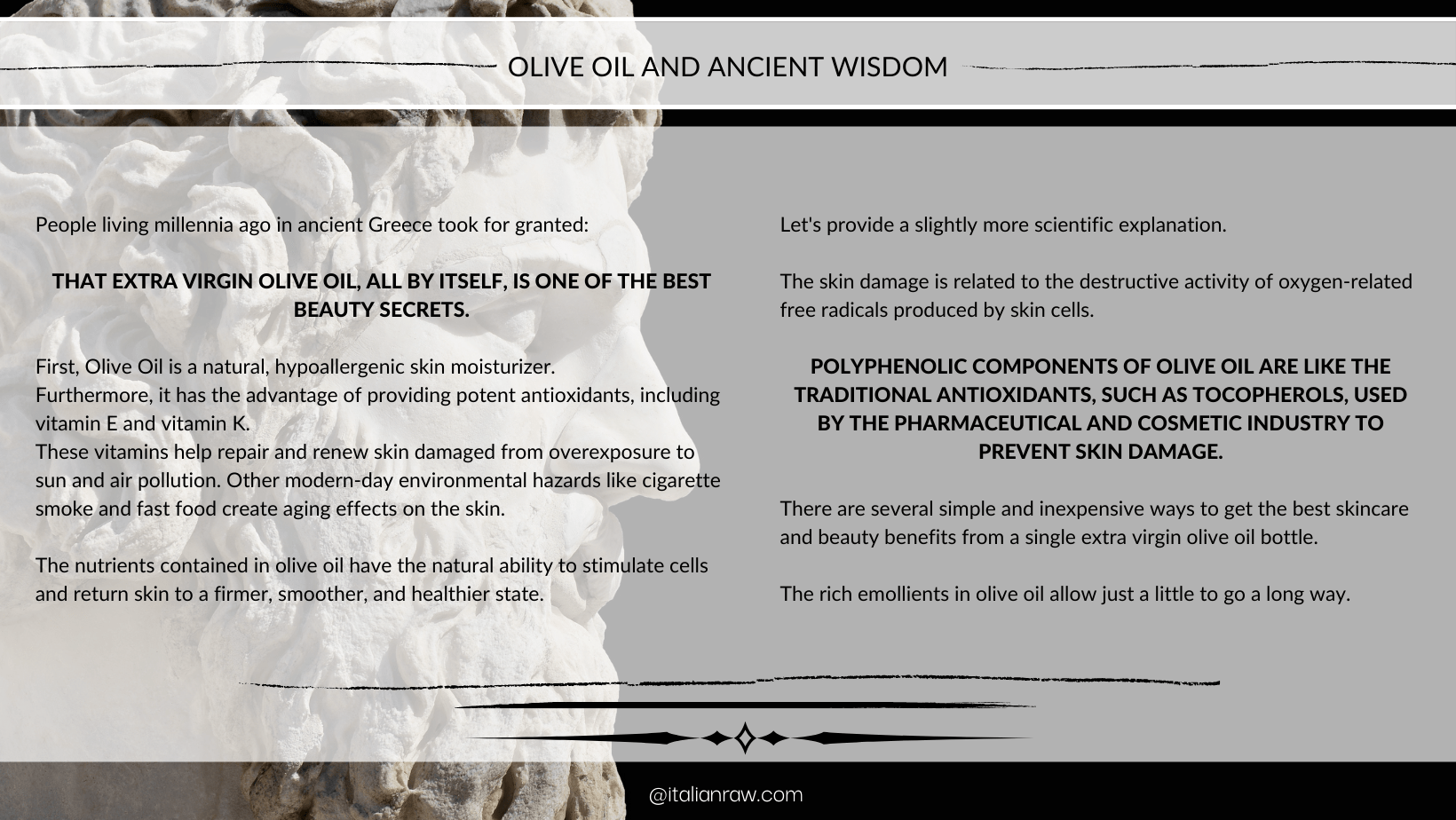



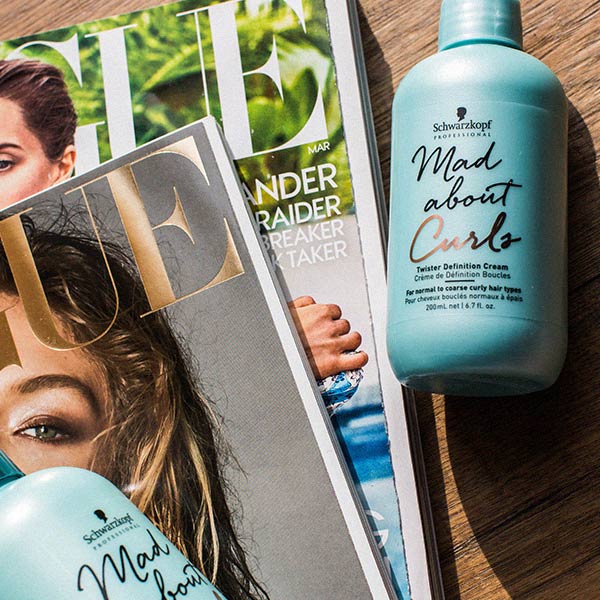


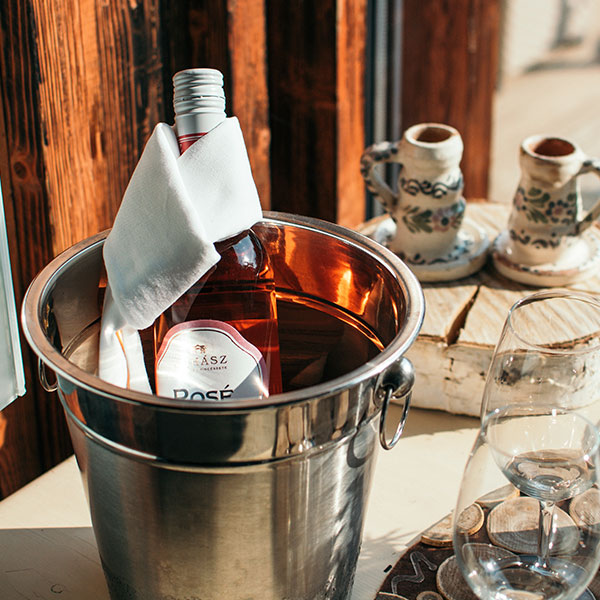

Dr Muhammad Faisal Khan
Greeting from Pakistan, we need information regarding filling of bottle with fresh olive oil. how we can avoid air during capping of bottles. guidance is required for long term storage of olive oil